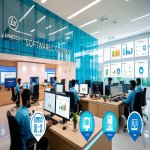
Rummy Circle and Teen Patti Clone App Development
Developing a Rummy Circle and Teen Patti clone app involves creating an engaging platform with real-time multiplayer features, secure payment gateways, and a variety of game modes. Focus on providing a smooth user experience with fair play algorithms, in-app rewards, and tournament options, while ensuring cross-platform support and global appeal.

Top-Notch App & Game Development Services in Bhubaneswar – Your Ideas, Our Expertise
A blogging website is a platform for individuals and businesses to share regular content, engage with readers, and build an online presence. Whether for personal expression or content marketing, blogging offers numerous benefits, including increased visibility, community building, and monetization opportunities. Learn how to create and manage a successful blog with tips on niche selection, content quality, SEO, and audience engagement.

Buy and Sales Product Online Web App
"Join our online marketplace where buying and selling products is easy, secure, and efficient. Browse a wide variety of items, list your own products, and enjoy smooth transactions with our user-friendly web app."

Resort Booking and management website
A **resort booking and management website** is a digital platform that facilitates seamless reservation processes for guests while providing resort owners with tools to manage operations efficiently. Key features for customers include a user-friendly interface, real-time availability, secure payment gateways, and detailed resort information. For resort managers, backend functionalities like reservation management, staff scheduling, billing, and analytics are essential for streamlined operations. These websites offer numerous benefits, including increased revenue, operational efficiency, and enhanced customer experience. Leveraging modern technologies like responsive design, secure payment systems, and powerful CMS platforms ensures a smooth, secure, and scalable user experience for both guests and administrators.

Affiliate Marketing Marketplace
An **affiliate marketing marketplace** is a platform that connects merchants and affiliates, facilitating partnerships where affiliates promote a merchant's products or services in exchange for a commission on successful sales or actions. These marketplaces serve as intermediaries, handling crucial tasks like tracking sales, managing payments, and providing necessary tools for affiliates to succeed. They offer merchants access to a global pool of marketers and enable affiliates to monetize their online presence through various promotional methods. With features like tracking, reporting, fraud prevention, and payment processing, these marketplaces streamline the affiliate marketing process, making it easier for both parties to grow and succeed.

Real Estate Plot Booking and Flat Sale website
A **Real Estate Plot Booking and Flat Sale Website** is a dynamic platform designed to simplify the process of purchasing plots and flats online. It offers users the ability to search for properties based on location, price, and amenities, with detailed listings that include high-quality images, floor plans, and real-time availability. Key features include an interactive map for plot booking, payment gateway integration, and the ability to schedule site visits or book properties directly through the website. Additionally, users can create accounts to manage their bookings, track payments, and receive notifications. For real estate agents and developers, the website provides an admin panel to manage listings, track sales, and engage with customers. With a focus on mobile responsiveness, SEO optimization, and user-friendly navigation, the platform enhances both the buyer's experience and the property seller's efficiency.




